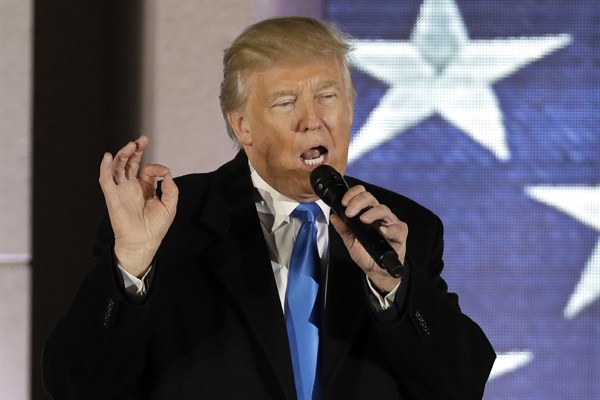America’s adversaries are almost certain to challenge U.S. President Donald Trump early on, testing his inexperience in national security affairs and his propensity to personalize political interactions. How he and his team respond will show the mettle of the new administration and determine whether other adversaries mount challenges of their own. What is not clear, though, is which of America’s adversaries will move first.
Russia, which appears to have launched a multidimensional assault to weaken Western democracies, seems the least likely to challenge the new administration. Indications are that Trump will get along well with Russian President Vladimir Putin. He has shown little concern for Russia’s cyberattacks, intervention in the U.S. electoral process, and aggression against neighboring states. Hence Putin would gain little from openly testing the Trump administration, at least in the short run.
Iran is also unlikely to mount a major challenge of the new administration. Heavily involved in the Syrian civil war and facing a restive, young domestic population, Tehran may continue low-level provocations, but would have little to gain from a major confrontation. While Trump has indicated that he would like to renegotiate the Iran nuclear deal, Tehran has rejected this idea. And without a unified front involving Europe, Russia and China, the United States could not bring enough pressure on Iran to compel it to accept more-restrictive conditions than those already in place. Washington and Tehran are likely to glower at each other while sidestepping major confrontation.

